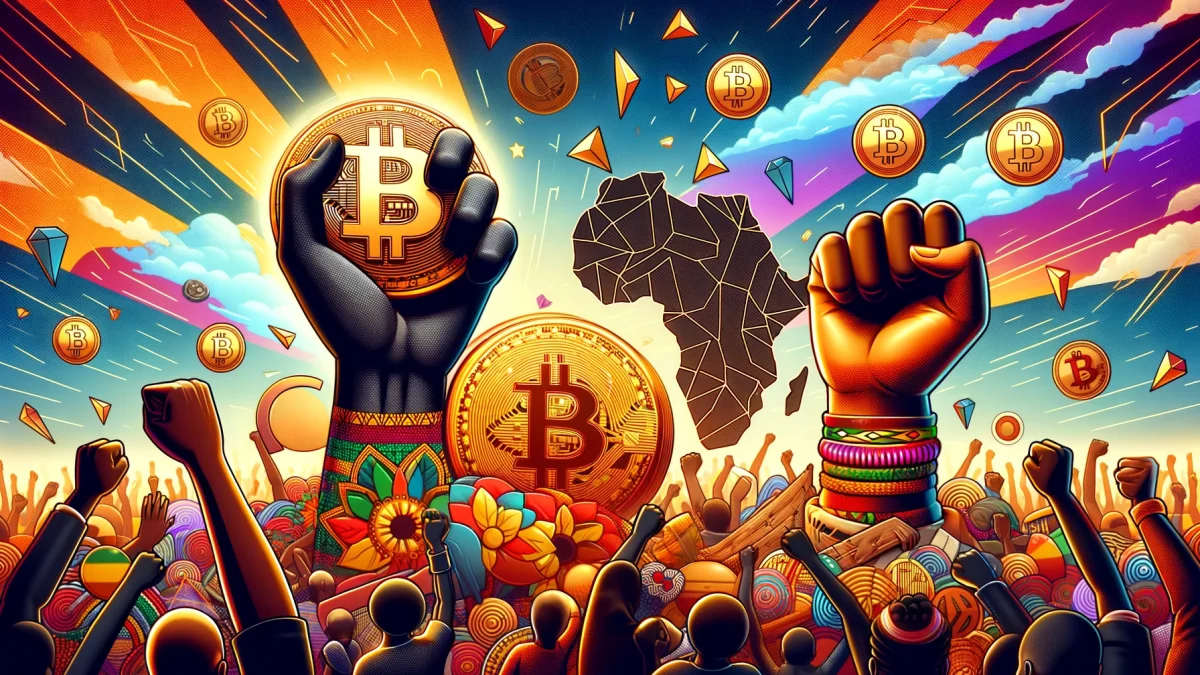In this powerful conversation during Bitcoin halving celebrations, Sinclair Skinner, founder of BitMari and the “I Love Black People” movement, reflects on over a decade of pioneering work in Bitcoin and blockchain technology. His journey illuminates both the challenges and opportunities for Black entrepreneurs in the cryptocurrency space while highlighting the connection between Bitcoin and Black liberation.
Speaking alongside early Bitcoin advocates including Professor Dr. Todd Siler and Alik Kanani (known as “The Bitcoin Lady”), Skinner provides rare insights into the early days of Bitcoin adoption within the African diaspora community.
The Genesis Block: Early Bitcoin Pioneers
Skinner’s introduction to Bitcoin came through Max Keiser and Stacy Herbert’s advocacy work around 2012. As an engineer focused on problem-solving rather than trading, he saw Bitcoin’s potential for financial sovereignty without exploitative third parties.
“We saw the problem being able to have some sovereignty and control over our ability to do transactions without third parties that are exploitative,” Skinner explains. This perspective would drive his entrepreneurial ventures across two continents.
The scarcity of Black representation at early Bitcoin events was stark. Skinner recalls the 2014 Bitcoin Foundation conference: “We had about 10 black folks there – it was us three and those serving the tea and the coffee.” This underrepresentation motivated his later advocacy work.
BitMari: Building Bitcoin Infrastructure Across Continents
Through a fortunate connection with Brian Armstrong’s early team at Coinbase, Skinner gained insights into building Bitcoin infrastructure. His co-founder Christopher Mender brought international business expertise, particularly in Zimbabwe, where they initially worked on ethanol projects.
The challenge of moving money from the US to Zimbabwe under sanctions became the catalyst for BitMari. Traditional banking barriers made international transactions nearly impossible, highlighting Bitcoin’s potential as both “the car and the road” – eliminating intermediaries entirely.
“We realized that this might be a way… if y’all remember back in those days we didn’t think about the value of the token as much as the rails,” Skinner notes, emphasizing Bitcoin’s utility over speculation.
Learning from Bitcoin’s Early Infrastructure
Skinner credits Reggie Middleton’s explanation of Bitcoin’s dual nature: “A dollar bill is like a car and credit cards are like the road… but Bitcoin is the car and the road – you don’t need any help, it actually can do both itself.”
This understanding shaped BitMari’s approach to solving real-world payment problems across Africa and the diaspora, focusing on Bitcoin’s technological advantages rather than price speculation.
Historical Context: Erased Contributions and Innovation
Skinner addresses the systematic erasure of African contributions to science and technology: “One of the most unfortunate things that was done wasn’t just the taking of things from us but the erasure of how so much of our ancestors’ contributions to innovation, to science, to math has been erased.”
He emphasizes that African peoples have been involved in scientific innovation “far longer than most,” challenging narratives that disconnect Black communities from technological advancement. This historical context frames his work in Bitcoin as continuation of a long tradition of innovation.
From BitMari to “I Love Black People”: Evolution of Purpose
Skinner’s journey evolved from solving technical payment problems to broader social movements. The “I Love Black People” initiative represents his recognition that Bitcoin adoption must address both technological and social barriers within Black communities.
His work demonstrates how early Bitcoin pioneers are transitioning from pure technology focus to community empowerment and education, ensuring that cryptocurrency benefits reach underserved populations.
Key Takeaways
- Early Bitcoin adoption: Black representation was minimal at early Bitcoin conferences, with only about 10 attendees at the 2014 Bitcoin Foundation event
- Infrastructure focus: Early pioneers prioritized Bitcoin’s payment rails over price speculation, seeing utility in cross-border transactions
- Real-world problems: BitMari emerged from actual needs – moving money between US and Zimbabwe under sanctions
- Historical continuity: Bitcoin adoption builds on African traditions of innovation in science and mathematics
- Community evolution: Bitcoin pioneers are expanding focus from technology to social empowerment and education
- Documentation importance: Recording early Bitcoin history prevents erasure of Black contributions to cryptocurrency development
The Road Ahead: Bitcoin and Black Liberation
Skinner’s journey illustrates how Bitcoin represents more than financial technology – it’s a tool for economic sovereignty and liberation. His transition from BitMari’s technical solutions to broader social movements shows how cryptocurrency pioneers are addressing systemic barriers to adoption.
The conversation serves as both historical record and inspiration for current Bitcoin advocates. As Skinner notes, “I hope we don’t have to wait till every halving to tell the stories or to capture the moment.”
His work demonstrates that Bitcoin’s revolutionary potential extends beyond price appreciation to fundamental questions of financial inclusion, historical recognition, and community empowerment. For BitHub Africa Africa’s community, Skinner’s journey offers valuable lessons on building sustainable Bitcoin infrastructure while addressing social justice concerns.
What aspects of Sinclair Skinner’s Bitcoin journey resonate most with your experience in cryptocurrency? Share your thoughts on how Bitcoin can address historical inequities in financial access.

